
The Nancy Cantor Warehouse, or simply The Warehouse, is a former storage warehouse of the Syracuse-based Dunk and Bright Furniture Company in Downtown Syracuse, New York, United States. It is owned and utilized by Syracuse University.
Colin Campbell was a Canadian video artist.

Lisa Steele is a Canadian artist, a pioneer in video art, educator, curator and co-founder of Vtape in Toronto. Born in the United States, Steele moved to Canada in 1968 and is now a Canadian citizen. She has collaborated exclusively with her partner Kim Tomczak since the early 1980s.
Phillip Barker is a Canadian production designer, filmmaker and visual artist based in Toronto, Ontario.

Michael Hoolboom is a Canadian independent, experimental filmmaker. Having begun filmmaking at an early age, Hoolboom released his first major work, a "film that's not quite a film" entitled White Museum, in 1986. Although he continued to produce films, his rate of production improved drastically after he was diagnosed with HIV in 1988 or 1989; this gave a "new urgency" to his works. Since then he has made dozens of films, two of which have won Best Short Film at the Toronto International Film Festival. His films have also featured in more than 200 film festivals worldwide.

Frank's Cock is a 1993 Canadian short film written and directed by Mike Hoolboom. The eight-minute production stars Callum Keith Rennie as an unnamed narrator who discusses his relationship with his partner, Frank. The two met while the narrator was a teenager and spent nearly ten years together. Frank has since been diagnosed with AIDS, and the narrator fears his death. The story was based on the experience of one of Hoolboom's friends at People With AIDS, which Hoolboom adapted after receiving a commission to create a short film about breaking up.
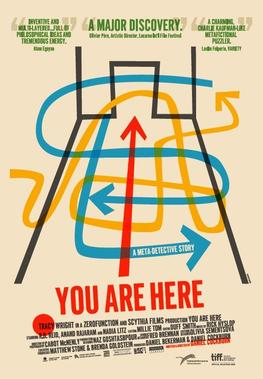
You Are Here is a 2010 Canadian philosophical speculative fiction film written and directed by video artist Daniel Cockburn, which he also co-produced with Daniel Bekerman. Cockburn's first feature film is "hyper-inventive and categorically hard-to-describe", initially billed as a "Borgesian fantasy" or a "meta-detective story", and later as "part experimental gallery film and part philosophical sketch comedy." In You Are Here, Cockburn makes use of the techniques and concepts he had honed over the previous decade as an experimental video artist with "a narrative bent", and "works them into a complex and unique cinematic structure." The film mainly follows a woman searching for the meaning behind a series of audiovisual documents from other universes, seemingly left purposefully for her to find, some of which are shown as vignettes concerning figures such as the Lecturer and the Experimenter interspersed throughout the film. She finds so many of them that they fill a space which she calls the Archive, and herself its Archivist. In time, the Archive appears to resist her attempts at cataloguing and organizing it, and she receives a cell phone instead of the usual document, leading to a fateful encounter with others.
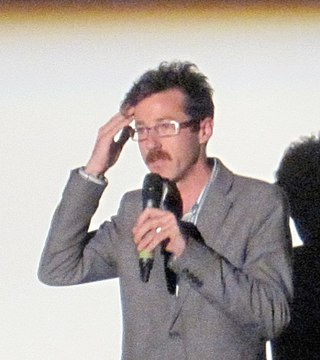
Daniel Ernest Cockburn is a Canadian performance artist, film director and video artist. Cockburn won the Jay Scott Prize in 2010 and the European Media Art Festival's principal award in 2011 for his debut feature film You Are Here.
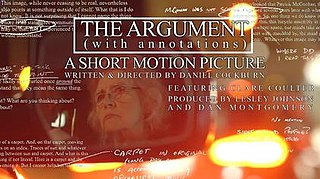
The Argument (With Annotations) is a 2017 Canadian-British short experimental drama film written, directed, and edited by video artist Daniel Cockburn. The short's first half attempts to deceive the audience into thinking it is a non-fictional video essay, revealing itself mid-way to be a work of fiction, the essay actually the work of the film's protagonist, an elderly professor (Clare Coulter). Submitted as Cockburn's thesis for the degree of Master of Fine Arts in Film studies at York University, the film had its world premiere at the 42nd Toronto International Film Festival, and has been warmly received by critics.

God's Nightmares is a 2019 Canadian-British short experimental black comedy film created by Daniel Cockburn that "mashes together" appropriated film clips, creating a visual collage that imagines the thoughts that plague God at night, his "interior monologue," in which he muses about a recurring nightmare of being an everyman.
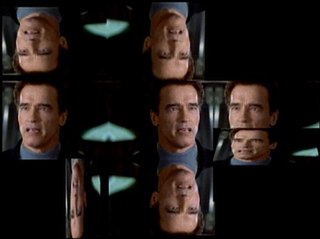
WEAKEND is a 2003 Canadian short experimental film created by video artist Daniel Cockburn, made through a remix of audio and video from The 6th Day, a Hollywood feature film about cloning starring Arnold Schwarzenegger. Commissioned by famefame for the third biennial Tranz Tech Media Art Festival, the work was awarded the Jury prize.
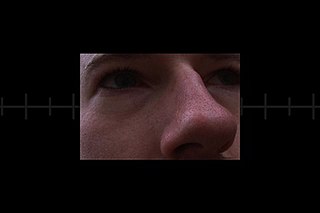
Nocturnal Doubling is a 2004 Canadian short experimental film by video artist Daniel Cockburn based on a thought experiment in Henri Poincaré's essay The Relativity of Space.
The Impostor (hello goodbye) is a 2003 Canadian short experimental film by video artist Daniel Cockburn, one of several works commissioned for The Colin Campbell Sessions and inspired by the makings of video art pioneer Colin Campbell for the Tranz Tech festival. Cockburn's video draws formally on Campbell's style while at the same time metaphorically expresses the artist's anxiety in making the video itself.
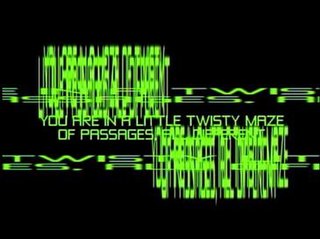
You Are In a Maze of Twisty Little Passages, All Different: Films and Videos by Daniel Cockburn is a 2009 Canadian experimental film anthology consisting of a curated programme of eleven short films by video artist Daniel Cockburn.

The Other Shoe is a 2001 Canadian short experimental film by video artist Daniel Cockburn, his third, which, along with Metronome (2002), earned a mention for the Homebrew Award when shown at the Images Festival and thereby broadened his reputation beyond Toronto.
The Bad Idea Reunion is a 2010 Canadian short experimental film by video artist Daniel Cockburn, in which an infant muses in an internal monologue on the future and the forms its good and bad ideas will take.
Denominations is a 2003 Canadian short experimental documentary film created by video artist Daniel Cockburn about some time spent with American video artist Joe Gibbons.
Stupid Coalescing Becomers is a 2004 Canadian short darkly comic experimental film by video artist Daniel Cockburn about time running backwards as an act of rebellion.

Louise Liliefeldt is a Canadian artist primarily working in performance and painting. She was born in South Africa and currently lives and works in Toronto, Canada. Liliefeldt’s artistic practice draws directly from her lived experience and is apparent in the use of symbol, colour and material in her work. Other influences include Italian, Latin and Eastern European horror films, surrealism and African cinema. Taken as a whole, Liliefeldt’s work is an embodied investigation of the culture and politics of identity, as influenced by collective issues such as gender, race and class. Her performance work has developed through many prolific and specific periods.
Aleesa Cohene is a Canadian visual artist based in Los Angeles.















